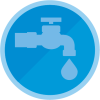Tell the Economic Story of Your Farmland Protection & Food System Programs Without Hiring an Economist - Oct. 14 - Nov. 11, 2021
Economic impact is an important selling point for funding farmland protection and the whole array of work related to strengthening local food systems and revitalizing rural agricultural landscapes and communities. Reliable economic figures about the impacts of agriculture, food systems, and your specific programs can help coalesce support among local and state officials, expand your circle of allies and partners to include economic developers and the local business community, back up funding requests, and build public support.
There are go-to sources studies that help substantiate the economic value of what you do. These can be useful in helping you make your case, but it’s even more compelling to speak directly about the benefits of your programs, your locally conserved lands, your farms and local food systems.
You don’t need to hire an economist and wade through piles of complex data to understand these economic benefits. This course will help you learn to paint a broad, research and data-based picture of the economic effects of your farmland protection and food system programs. You will also learn how to tell that story to support advocacy, fundraising, agriculture-based economic development, and stronger community relationships. You will learn and adapt a proven approach that engages community resources without hiring an economist, consultant or communications shop.
In this course, you will:
Adapt Harbinger’s “engaged analysis” approach to outline an economic study for your protected farmlands, farmland protection program, and/or local food systems work.
Identify goals and match up data sources, research methods and resources for conducting your study.
Learn how to assess and describe a wide range of economic and community benefits, and how to create simple, realistic ballpark economic estimates and projections.
Learn when, whether and how to update old economic studies.
Learn the basics of interpreting findings and presenting data to different audiences.
Review model approaches that you can adapt to your situation.
This course grows out of our popular “Tell the Economic Story of Your Trails and Conserved Lands” class, fine-tuned specifically to focus on farmland protection and associated programs aimed at sustaining and strengthening local and regional food systems and working farms and farmers.
WHOM IS THIS FOR?
Great for: Farmland trusts • State and local conservation land trusts • Open space program managers • Chambers of Commerce & business alliances • Community & economic development staff • Place-based & conservation organizations • Extension & community development professionals • High school and college students • Downtown & Main Street groups • Business owners & other community leaders
COURSE INSTRUCTOR
Michele Archie, Harbinger principal and lead for collaborative regional economic analyses, economic impact projections, visitor and resident surveys, outdoor recreation assessments, and peer area reviews. Michele has led more than three dozen such studies for national and state parks, World Heritage Sites, trails and other recreational and protected areas across the United States, and has adapted her core analytic and engagement approaches to a wide variety of settings. See Michele's LinkedIn profile.
SESSION DATES AND TIMES
Five weekly one-hour sessions
Thursdays – October 14 - November 11, 2021
11 a.m.-12 p.m. PT/2-3 p.m. ET
MORE DETAILS
Sessions available for replay in case you need to miss a session or want to review.
Includes a post-course one-on-one or group consultation session to address your particular situation and needs.
Early registration discounts through June 3. Register by April 30 for an additional “super-early” registration discount.
- $350 by April 30 • $425 by June 3 • $525 regular course fee
Discounts for two or more participants from the same organization or community:
- $325 by April 30 • $375 by June 3 • $425 regular group rate
Inquire about special discounts and arrangements for groups of 5 or more. We often work with cohorts in our courses, and can create a custom package including group meetings and coaching during and/or after the course.

